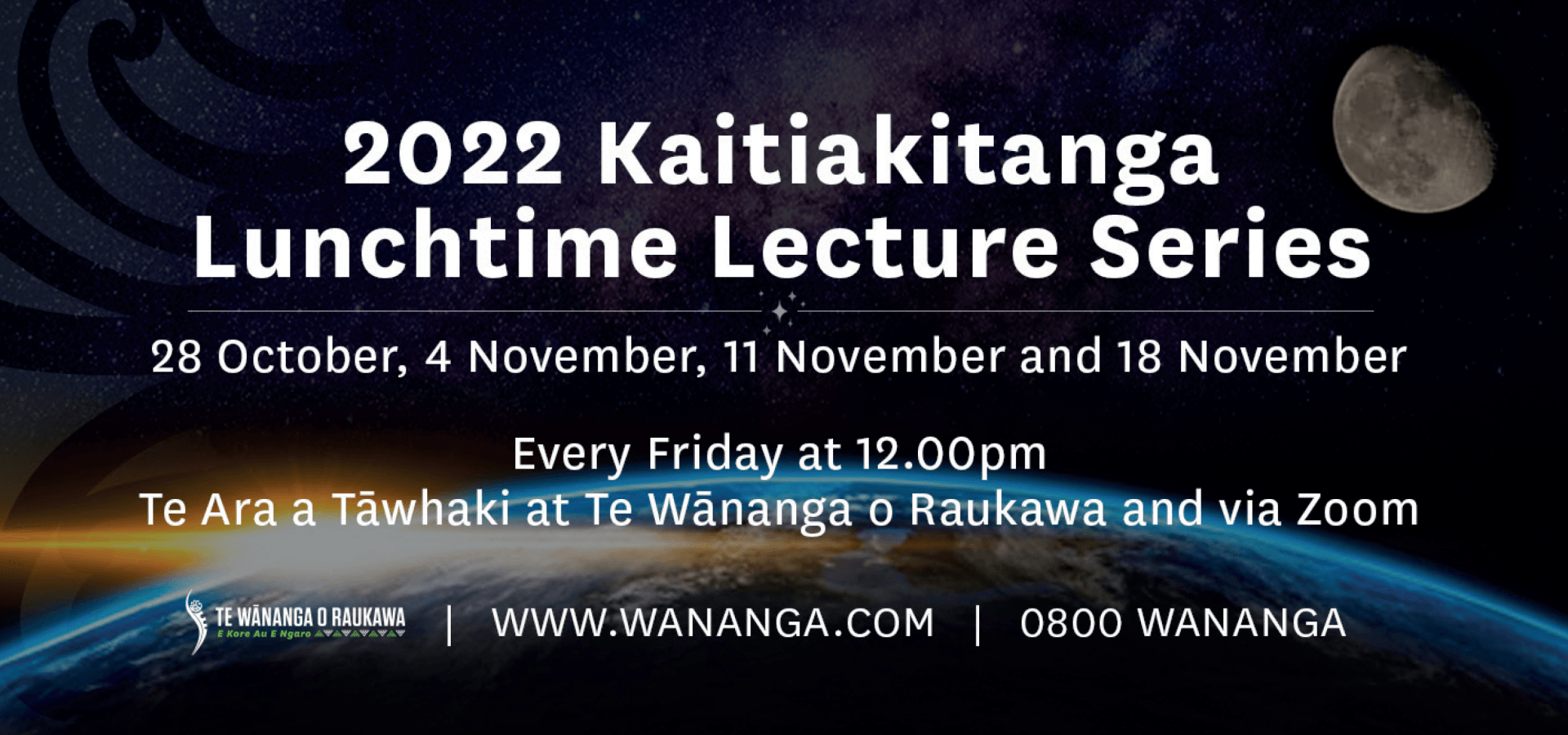
He kāhui ranga i te pō, tēnei te ao mārama ka hura.
Ko te reo pōwhiri tēnei ki ngā iwi o te motu nau mai, haere mai.
Tau mai ki Te Wananga o Raukawa, ki te whare o Te Ara a Tāwhaki,
ki konei tātou whakarongo tahi ai ki ngā kōrero mō te Maramataka Māori,
arā, ngā tātai kōrero i waihotia mai e ngā mātua tūpuna hei ārahi i a tātou i roto i te ao e takatū nei.
E te iwi e, raupī mai, tōpu tahi mai ki te whakaū i te reo karanga o te taiao, e karanga atu nei,
haere mai, haere mai, tauti mai rā.
The purpose of this years Lunchtime Lecture Series is to provide our wānanga and community with some focused information about what maramataka is, how it was developed, refined and used by our ancestors. We will hear from maramataka exponents about how maramataka can be adapted and used for everyday life.
One of our speakers will look at a marakatama 101 approach and help those in attendance to understand how to develop their own monthly maramataka. Other speakers will look at its origins, provide interesting information about how maramataka can be used for a small or large groups and/or for personal use.
One thing is for sure, Maramataka Māori is a tool that is as applicable today as it was in the past. This can provide a tool for monthly or yearly planning, as a framework for structuring certain activities and work at certain times of the lunar calendar, or as a tracker of underlying energy levels.
We hope that knowledge around the maramataka can be learned, used for work and play and in time could replace our monthly solar calendar. We also hope it will help us lead more connected lives everyday.
Please feel free to attend our series and contribute to this interesting revival of old but timeless knowledge.
This year the nation has created a new public holiday – Matariki. This has bought matariki into focus for many of us as we ask ourselves ‘what else can we do other than have a day off?’ We know that Maramataka has a connection to food abundance, weather patterns, peoples moods and energy levels, sleeping patterns and so on.
One question is how can we better understand the maramataka and bring it into everyday use?
Click the button below to access recordings of the Lunchtime Lecture Series




